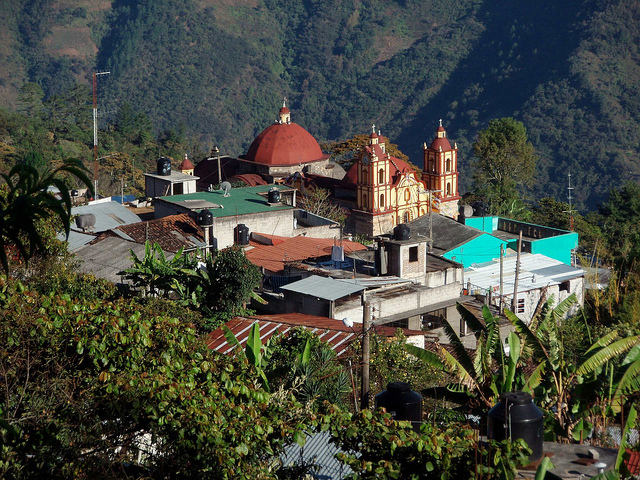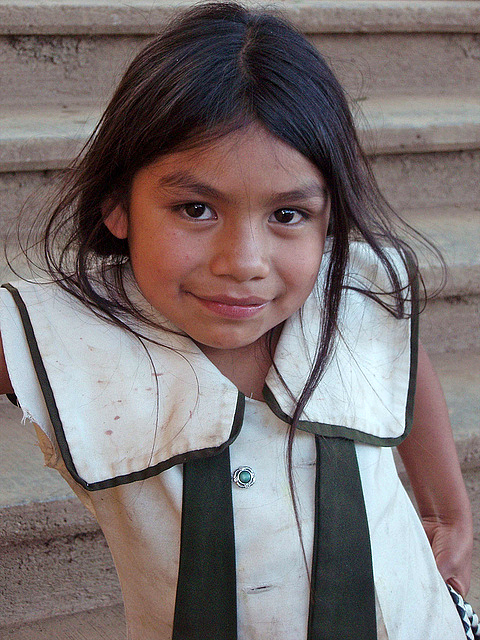Commercial firms in Mexico had refused requests from Zapotec villages in the mountains of Oaxaca to provide cell phone service, so one of them decided to do it themselves. An article in New York magazine on November 1 describes the struggles of a Zapotec community in the northern part of the Mexican state to found and operate their own cell phone network for the indigenous mountain villages.

The town of Talea de Castro, along with some nearby rural communities in the Sierra Juárez, was not about to accept negative responses from established cell phone companies such as Telcel and Movistar. The Zapotec people were determined to get cell phone service. So they petitioned the federal government of Mexico in 2013 for permission to use a radio frequency for their own cell service that they were planning to develop.
The permission was granted and the community organized a company called Indigenous Community Telecommunications (TIC). The company has grown to the point where it now provides inexpensive cell phone service to over 3,400 people in remote areas of Oaxaca. The non-profit firm is run by the town and has expanded its service to 16 other communities.
Martha Pskowski, the journalist writing for the magazine, spoke with Erick Huerta from Rhizomatica, a nonprofit company that works with cell phone providers, including TIC. He explained that a for-profit company like Telcel, which has very low profit margins, has a hard time making repairs on equipment in places like Talea de Castro simply because of their remoteness.

But he felt that the Sierra Juárez region was fertile ground for the people to start their own non-profit company—to do it for themselves. Since the Zapotec communities already govern themselves through their traditional usos y costumbres system, founding a community company on their own was clearly a good fit, he argued.
Huerta said that the indigenous operators of TIC work with independent programmers who have developed open-source software to operate the new network. Each community that wishes to join the network has to install its own base transceiver station operated by solar power. It connects local calls with the network so callers can talk with people anywhere. The users pay 42 pesos (U.S. $2.00) per month for their local calls within the network, a little more for out of network calls. Of that amount, 15 pesos go to TIC, 25 stay in the community, and 2 go into a fund set up for taking care of emergency repairs. In comparison, Telcel charges 200 pesos (over $10.00 U.S.) per month for its service.
The Mexican federal government initially approved the license permitting TIC to launch its operations in May 2014 and in July 2016 it granted a permanent license to operate on public radio frequencies. But then, the agency in charge of the permitting process, the Federal Telecommunications Institute, slapped a one-million peso fee on the company for its use of the radio network. TIC won a ruling in its favor in a federal court in April 2018 so that it only has to pay fees for use of the radio spectrum during the formal launch period in 2016.

Sr. Huerta sums up the situation: “It’s been a constant struggle for recognition of indigenous peoples’ rights to have their own forms of communication.” He goes on to summarize the benefits for the Zapotec in their mountain villages of having cell phones. Taxi services have seen their businesses increase by 30 percent because people living outside of towns can now call for a cab. Lifesaving medical care facilities—such as for women who experience complications during labor or for field workers who are bitten by snakes—are now only a phone call away.
A news story about the cell phone system in Talea de Castro published in September 2013 when it was only six months old indicated that it had already become quite popular and had quickly grown to 720 subscribers. It was so popular that the town council voted to have the system automatically restrict calls to five minutes duration in order to preserve access for everyone. At the time, observers were predicting that the new community-based telephone system could become a widely-copied model.
The small experiment continues to grow, according to the article in New York magazine. TIC is exploring expansions of satellite-based services into other Mexican states. It is consulting with Brazilian communities that are seeking to launch their own cell-phone systems. It will be interesting to see if the example of strong communities that make decisions for themselves and take firm charge of their own affairs, one of the essential features of Zapotec society, will be emulated by other rural communities.

